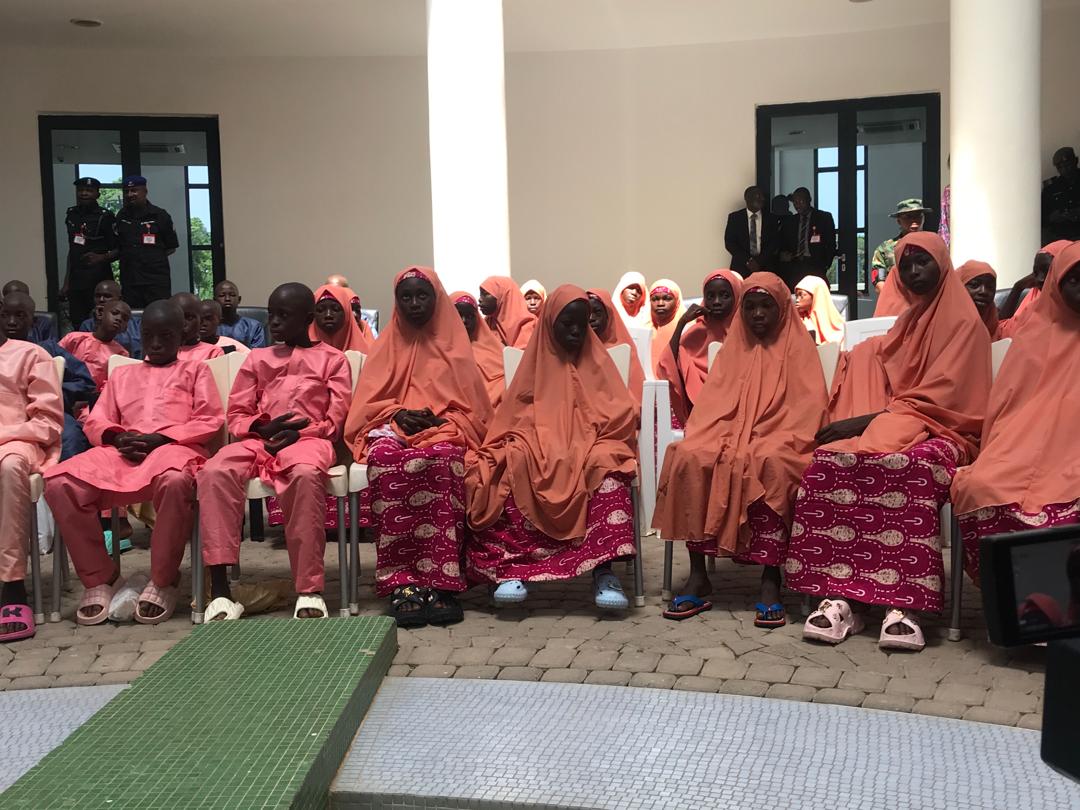Schoolchildren abducted from Kuriga
Since the April 2014 abduction of 276 schoolgirls from Government Girls Secondary School (GGSS) in Chibok LGA of Borno state, Nigeria has recorded at least 15 other incidents of mass abduction.
Schoolchildren and students are usually the targets.
Between 2014 and 2021, at least 1,119 students were abducted in northern Nigeria.
After the infamous Chibok abduction, about 110 schoolgirls were kidnapped in February 2018 by Boko Haram fighters from the Government Girls’ Science and Technical College (GGSTC), Dapchi, Yobe state.
Advertisement
More followed. In February 2021, over 300 female students were abducted by armed bandits at the Government Girls Science Secondary School in Jangebe, Zamfara state.
A few months after the Jangebe abduction, over 100 schoolchildren, mostly girls were kidnapped by bandits at the Federal Government College (FGC) Birnin-Yauri, Kebbi state.
The Book Haram insurgent group has taken responsibility for some of these kidnappings; but in recent instances, armed men said to be bandits have been credited as the masterminds behind the kidnappings.
Advertisement
After the abductees are whisked away, the kidnappers reach out, demanding a ransom for their release. Sometimes, a prisoner swap request is made.
Security forces have said that they know the location of the abductees but cannot forge ahead with the rescue mission because the victims are used by the kidnappers as human shields.
Earlier in the month, two mass abductions happened within a few days.
On March 7, bandits invaded a primary and secondary school in Kuriga community in Chikun LGA of Kaduna and abducted 287 schoolchildren, including their teachers.
Advertisement
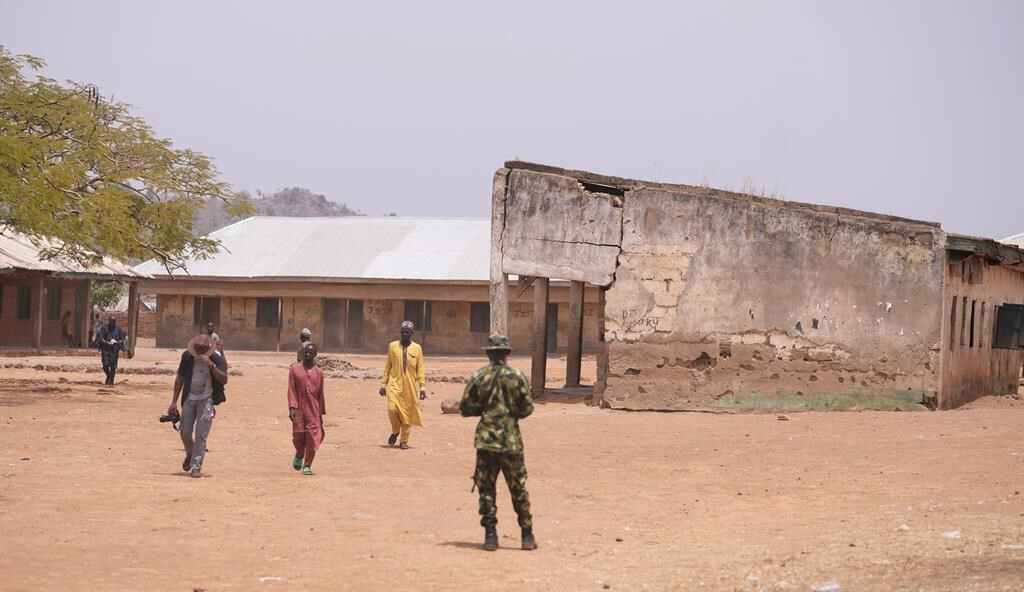
The dust was yet to settle on the incident when on March 9, bandits abducted 15 Tsangaya students at Gidan Bakuso in Gada LGA of Sokoto.
Tsangaya is a school that combines Islamic and Western education.
The Kuriga students were rescued on March 24, after spending 17 days in captivity, while the Sokoto Tsangaya students regained their freedom after 13 days.
Are there any connections between these incidents? What are the motivations? Who are the perpetrators? TheCable spoke with security and education experts for insights.
Advertisement
MOTIVATION BEHIND THE ATTACKS
Malik Samuel, a security analyst with the Institute of Security Studies (ISS), said having several abduction incidents within such a short period is not novel. He added that the number of victims involved might be what is different in the recent incidents.
Advertisement
Samuel said the perpetrators of the attacks were two different non-state actors with different motivations.
“From their antecedents, the bandits abduct specifically to demand ransom and of course, you know what they do with your ransom, to further their goal, to pay for their logistics and needs in carrying out their operations,” Samuel said.
Advertisement
“The attack in Borno state is different because first, you understand the profile of the victim that were taken — men and women who had gone out to fetch firewood so from the information that we have at the Institute of Security Studies based on our contacts, the targets primarily were the women that were taken because before this particular incident, a day before that attack, some women had gone out to fetch firewood and they met the same gang who had warned them to stop coming to that place because if they continued coming, they would be taken and that they needed wives and women as Ramadan was coming.”
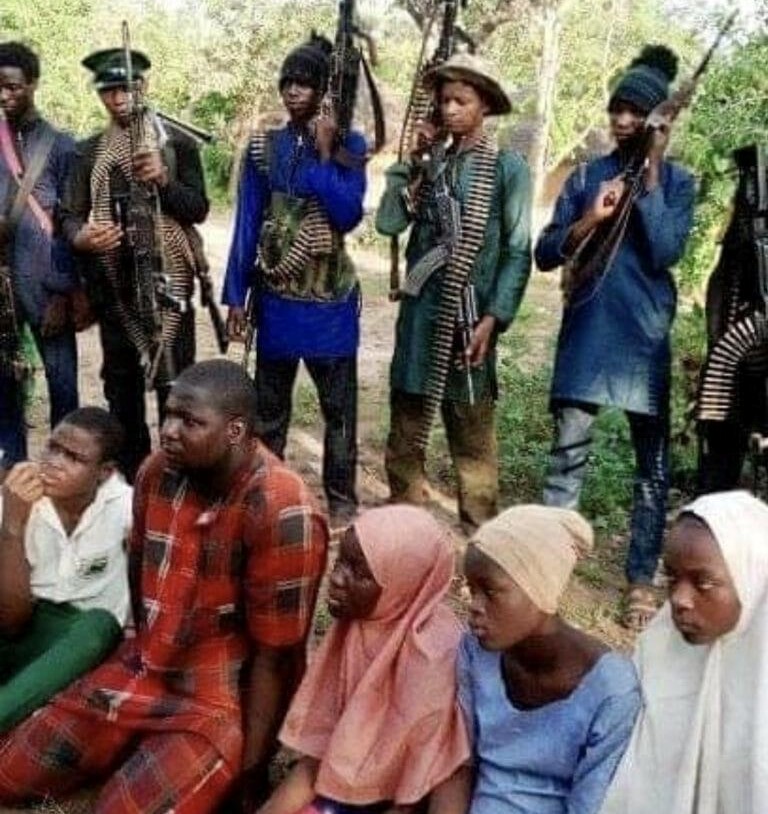
Bello, a counter-insurgency expert and security analyst who spoke with TheCable on condition of anonymity, said the abduction of school children in Kaduna was partly informed by a need for funds by the bandits.
Advertisement
According to him, Yellow Jambros, a popular terrorist and kidnap kingpin, is the mastermind of the abduction.
The Nigerian Air Force (NAF) claimed in December 2023 that it killed Jambros in an airstrike in Niger state.
However, Bello claimed that Jambros is still alive and masterminded the kidnapping of the Kaduna students “to make the government stop the deployment of the civilian joint task force” on his camp.
He said Jambros’s camp in Dansadau LGA of Zamfara state, where he claimed the students are being held hostage, has come under several attacks and that the bandit has lost a number of his commanders.
He said the bandits are frustrated by the sustained attacks on their camps and the closure of all negotiation windows by the Zamfara state government.
“They are also desperate to do something that would embarrass the government because they know that once they attack a school, they will get the desired attention; even if they ask for ransom, they will be given.”
WHAT ARE THE LOOPHOLES?
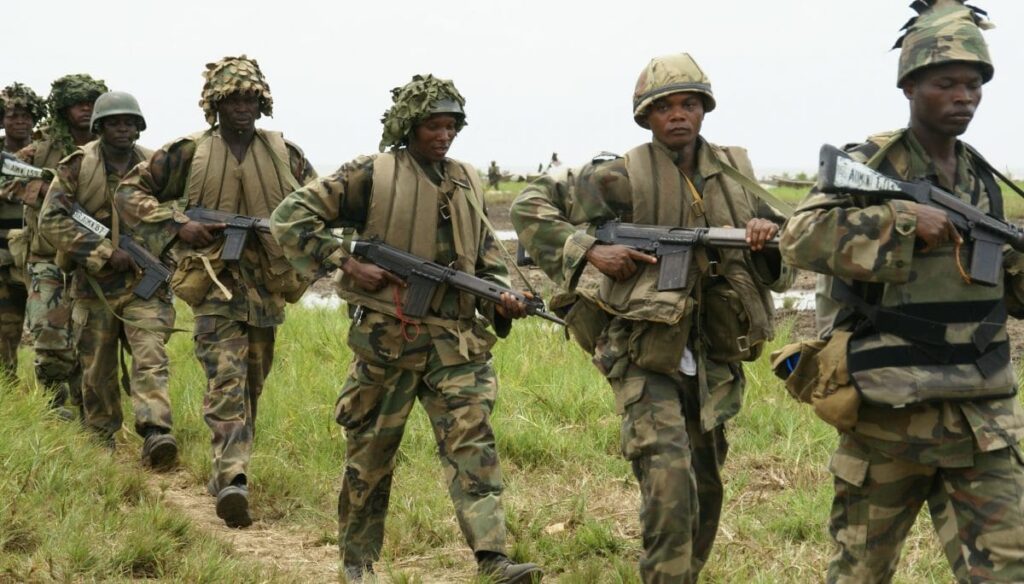
Bello said there was a lack of coordination in intelligence on the part of the security forces “because they are supposed to understand the movement of these guys”.
He also blamed the incessant attack on an “overstretched military” as well as the poor or non-existent functionality of the Safe School Initiative designed to protect educational institutions from attacks.
On the adoption of a “no-ransom policy” by some state governments and the military, Bello said, “Through the backdoor, they might likely pay the ransom”.
He advised the federal government to engage a third party that would liaise with the perpetrators on its behalf.
“Intensified operations are also supposed to be executed within the bandits’ enclaves even if there will be collateral damage. That way, the bandits will know that they will not kidnap anybody and they will go scot-free. No matter what happens. Their locations and where they operate are well known,” Bello said.
He said when the fight is taken to the bandits or insurgents, they will be forced to abandon their victims and escape, saying the bandits don’t like being confronted.
Bello also argued that the role of dialogue is quite crucial in the Nigerian situation.
“They have people that they listen to. It is even easier to dialogue with a bandit than Boko Haram terrorists because bandits are criminals while the Boko Haram terrorists are ideologists fighters,” he said.
“When you listen to these bandits, you end up realising the government has not been fair to them. Everybody has his demands. You may not meet them, but you can negotiate them so that all these killings will stop.
“You have to go after their sponsors too. How are they getting their weapons?”
THE ROLE OF STATE POLICE
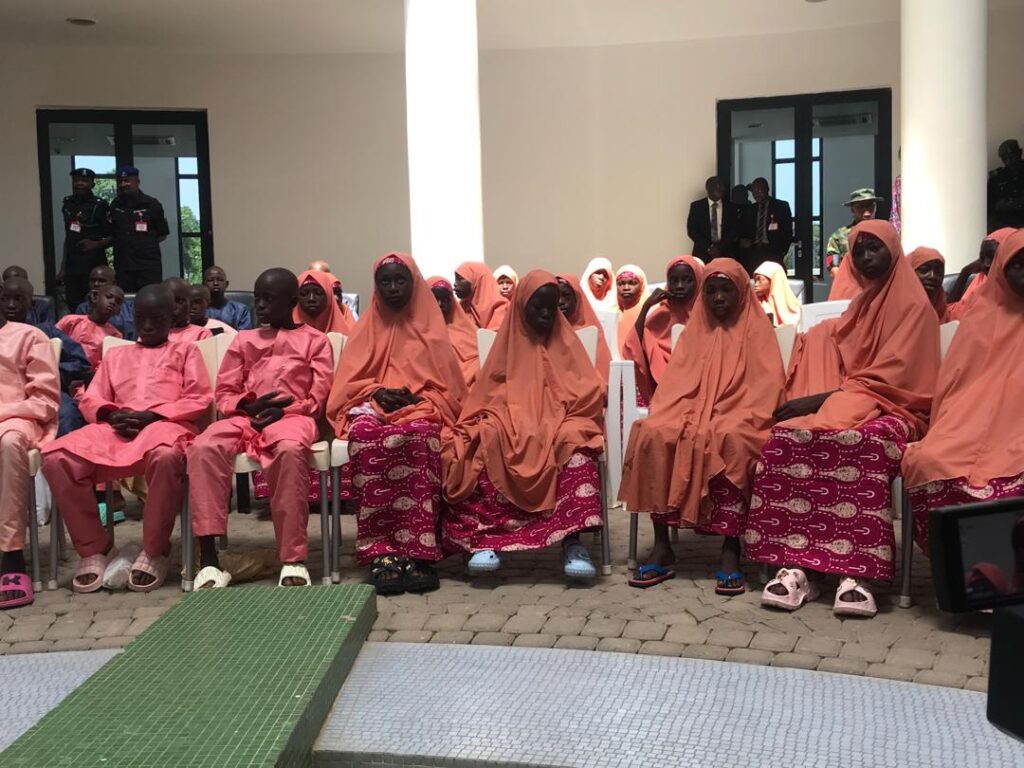
Asked if the deployment of state police as demanded by several stakeholders is the missing factor in tackling insecurity, Samuel said though the idea is a welcome development, it would not exactly resolve Nigeria’s security issues unless the root causes of insecurity are tackled.
“We’ve been down this road for years and it continues to happen because the government is yet to find a solution. If you look at many states, there are community security agencies that I think in a way resemble what state police are. The Amotekun, vigilantes, CNJTF,” Samuel said.
“If you don’t deal with the root, you may deploy all able-bodied men into the military or police and you’d achieve nothing. You have governance issues, unemployment, the absence of the state in many rural communities, perceived corruption of leaders, people getting away with crime and impunity emboldens other people to take to crime. So you have to tackle the root causes before talking about kinetic measures which is the deployment of security forces. Non-kinetic measures should be deployed in complementarity with the use of kinetic forces.”
DISTRUST IN EDUCATION SYSTEM, MORE OUT-OF-SCHOOL CHILDREN

Commenting on the immediate and long-term effects of the abductions on the educational sector, Oluwatoyin Ajilore-Chukwuemeka, a STEM education researcher, told TheCable that it would result in an increased number of out-of-school children, especially in the northern region where the figures are already high.
“It’s going to be a distrust of the educational system. Many of these issues are happening in areas where there are a lot of out-of-school children already; so, combined with the fact that we already have a huge problem of out-of-school children that is concentrated in a certain area, plus the fact that people now distrust the education system because there is an implicit promise of security that the education system gives,” Ajilore-Chukwuemeka said.
“The idea is, if I am sending my child to school, I expect that the school keeps them safe. So, if that particular trust is broken, it is almost like you’re giving people more reason to say why should they send their title children to school in the first place.
“And this is me also speaking particularly because I know many of these issues have been concentrated around the northeastern part of Nigeria where we’ve actually had the highest number of out-of-school children. One of my biggest concerns is how this is actually going to sort of skyrocket the out-of-school children problem. You know we are already trying to curtail it but it’s just going to make the effort more difficult because now we are going to be losing the backing of important stakeholders like parents, and you cannot blame them.
“It is better for me to keep my child in the house and keep them safe and maybe they’re not going to school than for me to send them to school and you can’t assure their safety.”
Speaking on the security implications, Sani Usman, former director of army public relations, said the constant kidnapping of school children by non-state actors carries significant and obvious security and psychological implications to the victims, the family and the society at large.
He said the experience of being forcibly taken away from loved ones, coupled with the uncertainty of their fate, leaves lasting emotional scars.
“Kidnapping incidents erode trust between the people and the government. For example, because of the incessant kidnapping of particularly students and school children, the people seem not to believe in the government’s ability to protect them, especially vulnerable groups like schoolchildren. It also undermines confidence in the security agencies and highlights weaknesses in law enforcement and intelligence gathering in the country,” Usman said.
“If care is not taken, it can lead to social unrest, as we have had instances of road blockades and protests. It also lead to displacement of populations, for example over 100 villages in Malumfashi and Kankara LGAs of Katsina have been sacked. The economic downturns in such affected regions are unprecedented.
“Among the security implications are that such occurrences serve as a means for non-state actors to finance their operations and recruit more younger people into their criminal fold. Ransom payments or other concessions made in exchange for the release of hostages deprived the affected families from their means of livelihood and further empower the bandits and kidnappers to fund their illicit activities. All these have far reaching security implications for the country.
“The psychological trauma of being the next possible victim is also there. Moreover, the threat of abduction looms large over students, parents, and educators, causing heightened anxiety and stress. This constant state of fear affects mental health and well-being, leading to decreased academic performance, sleep disturbances, and other psychological issues.”
Add a comment

